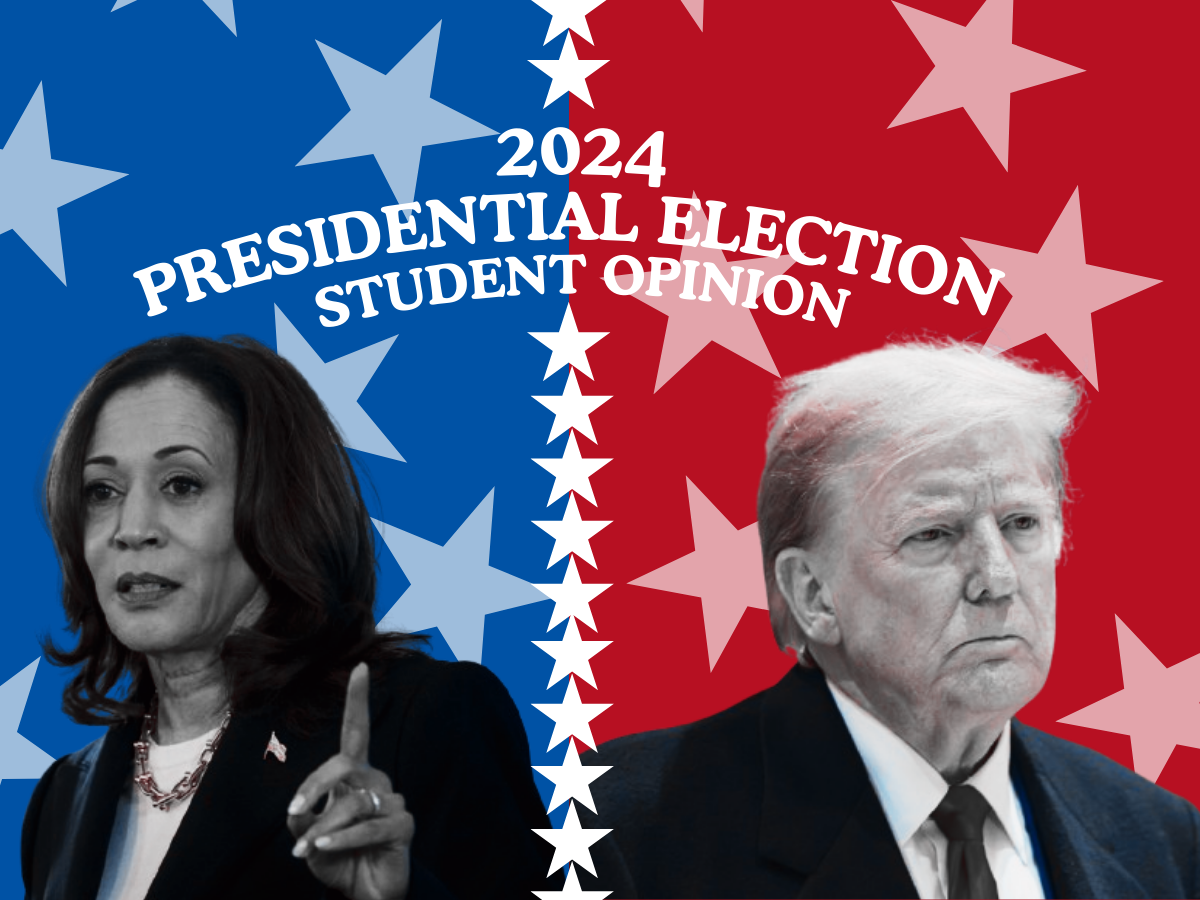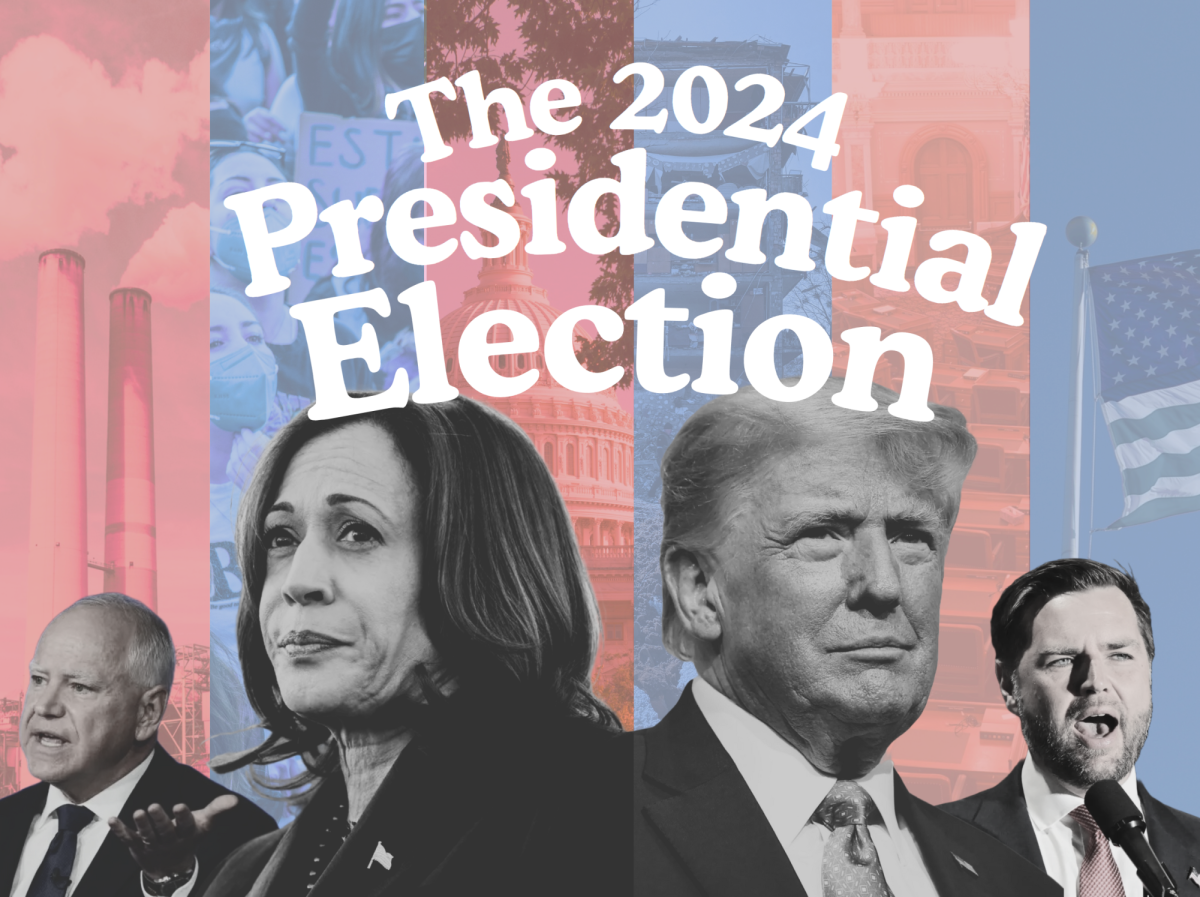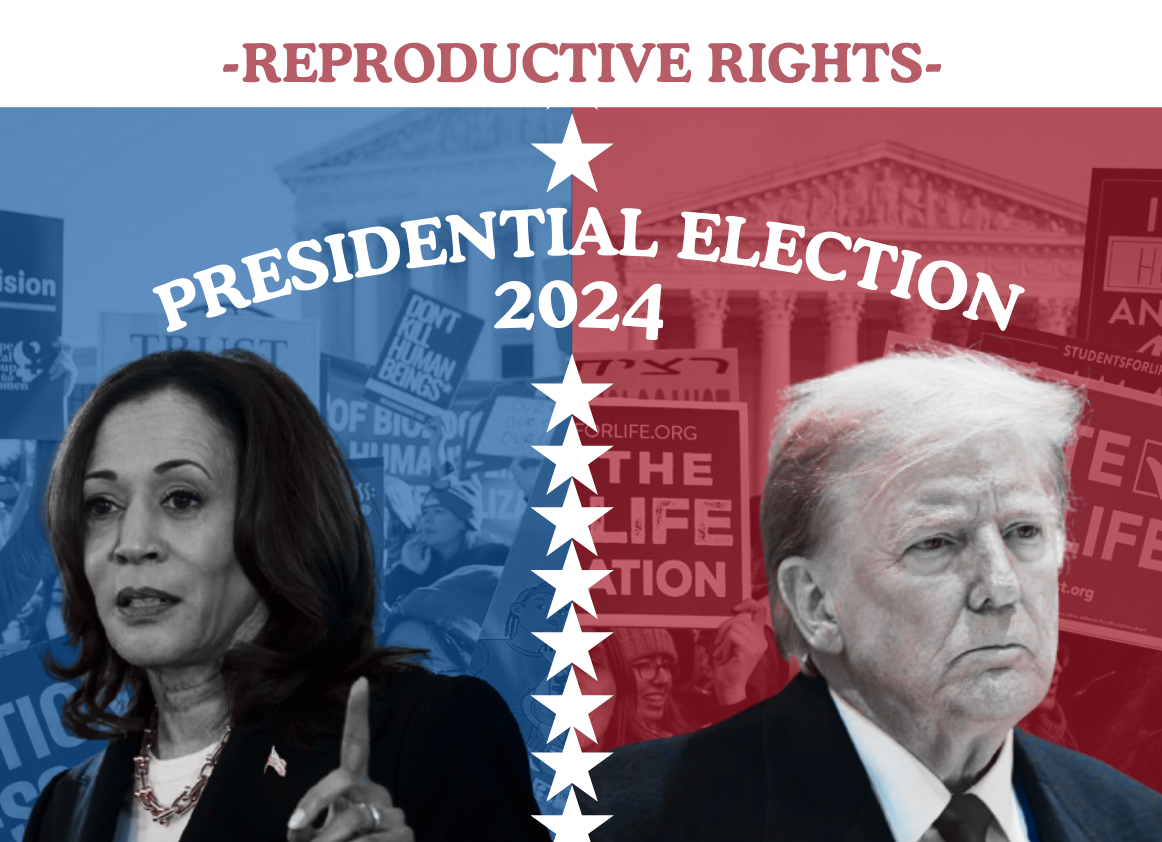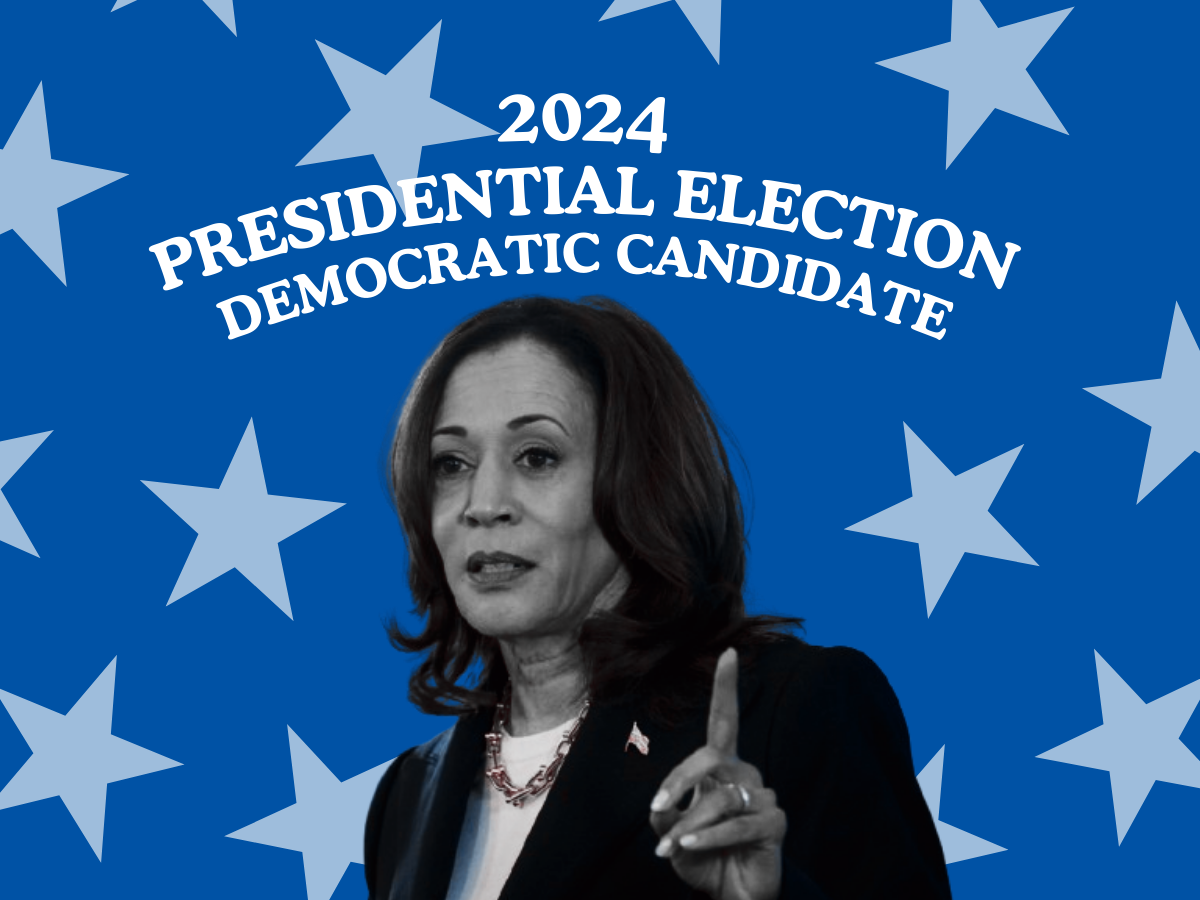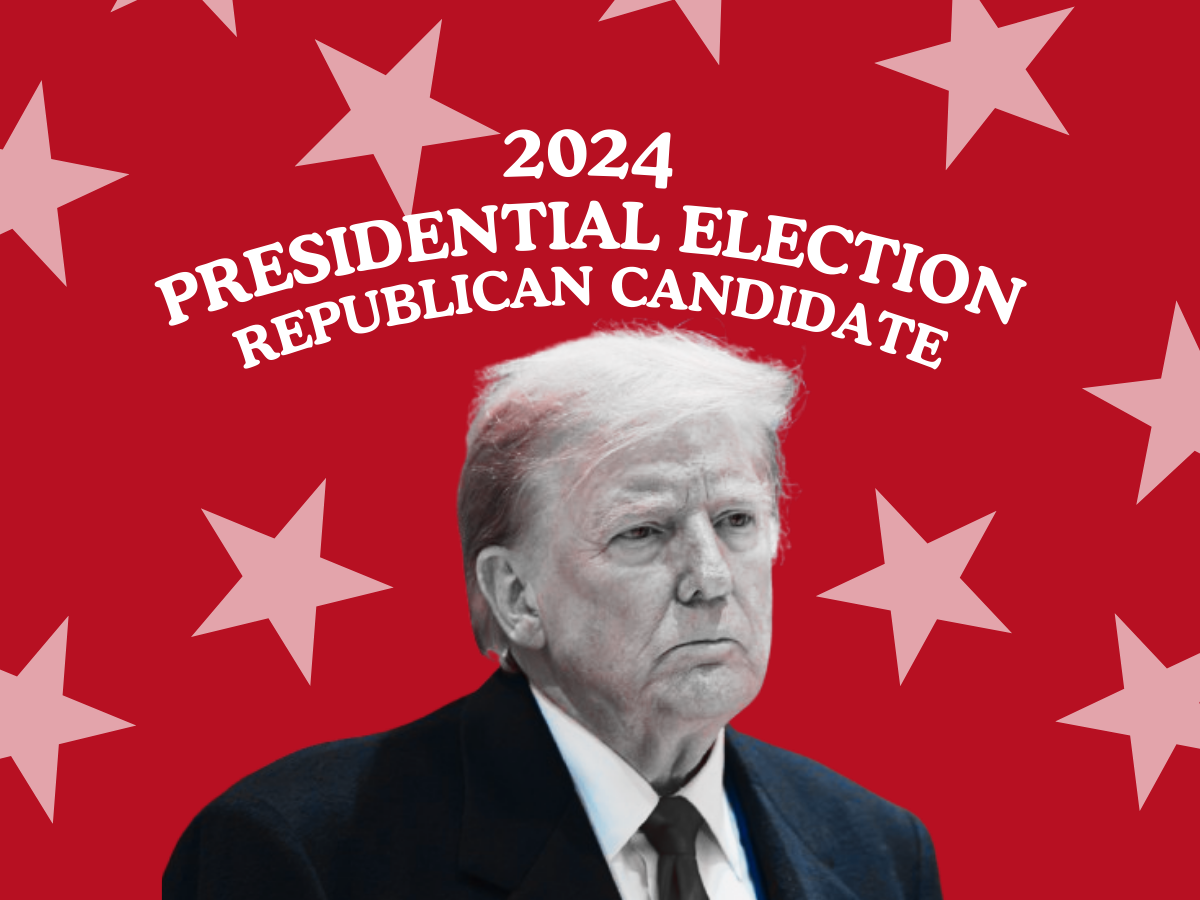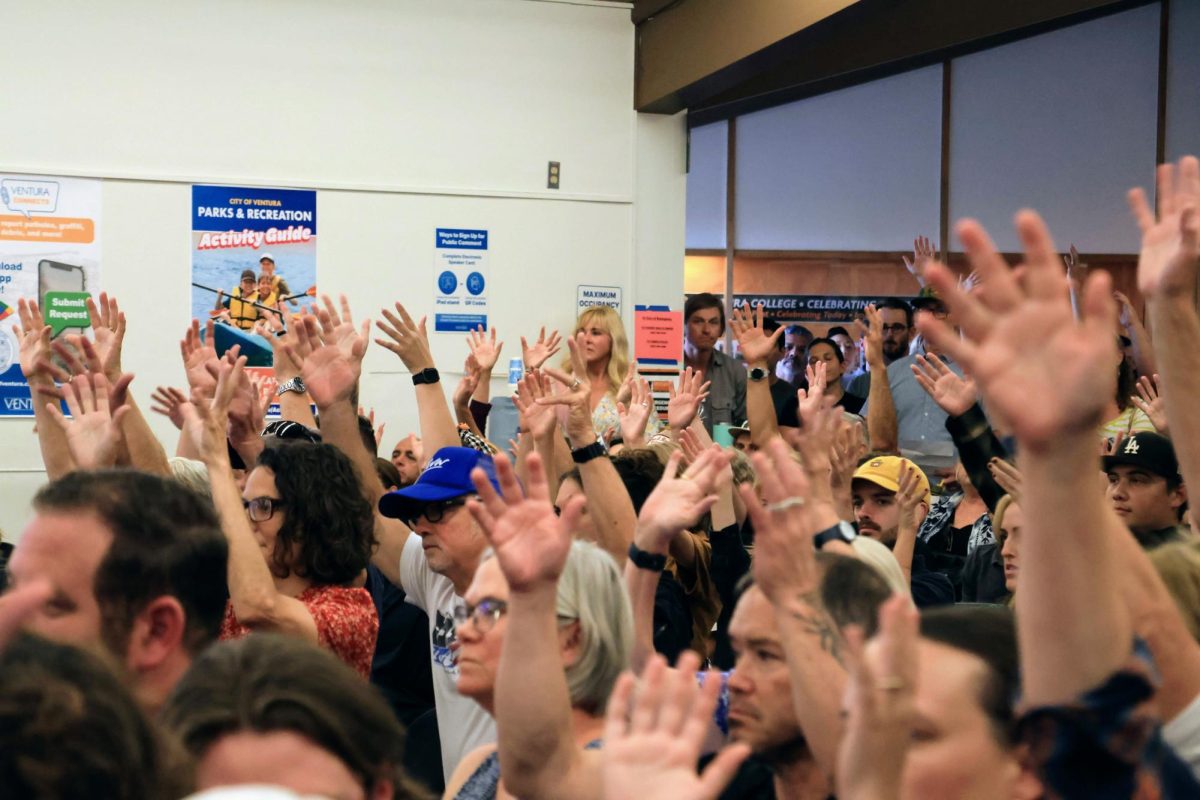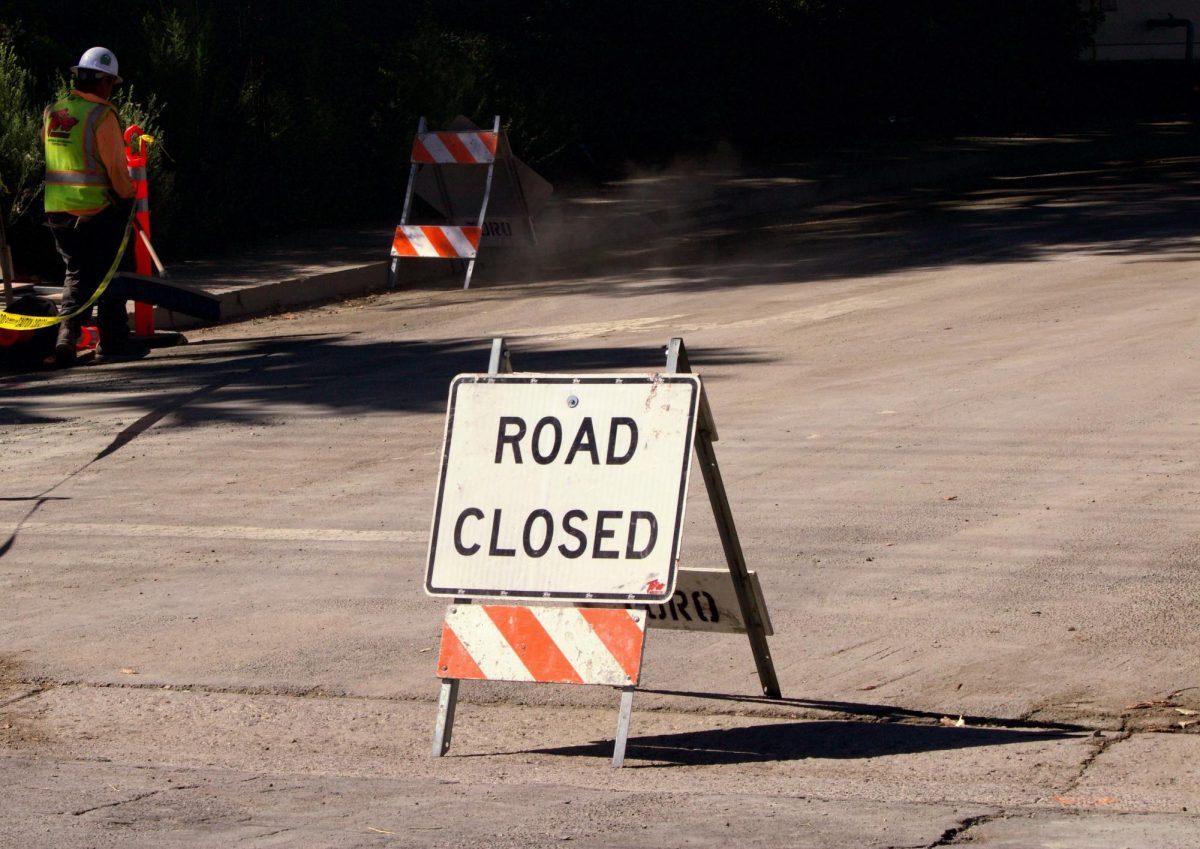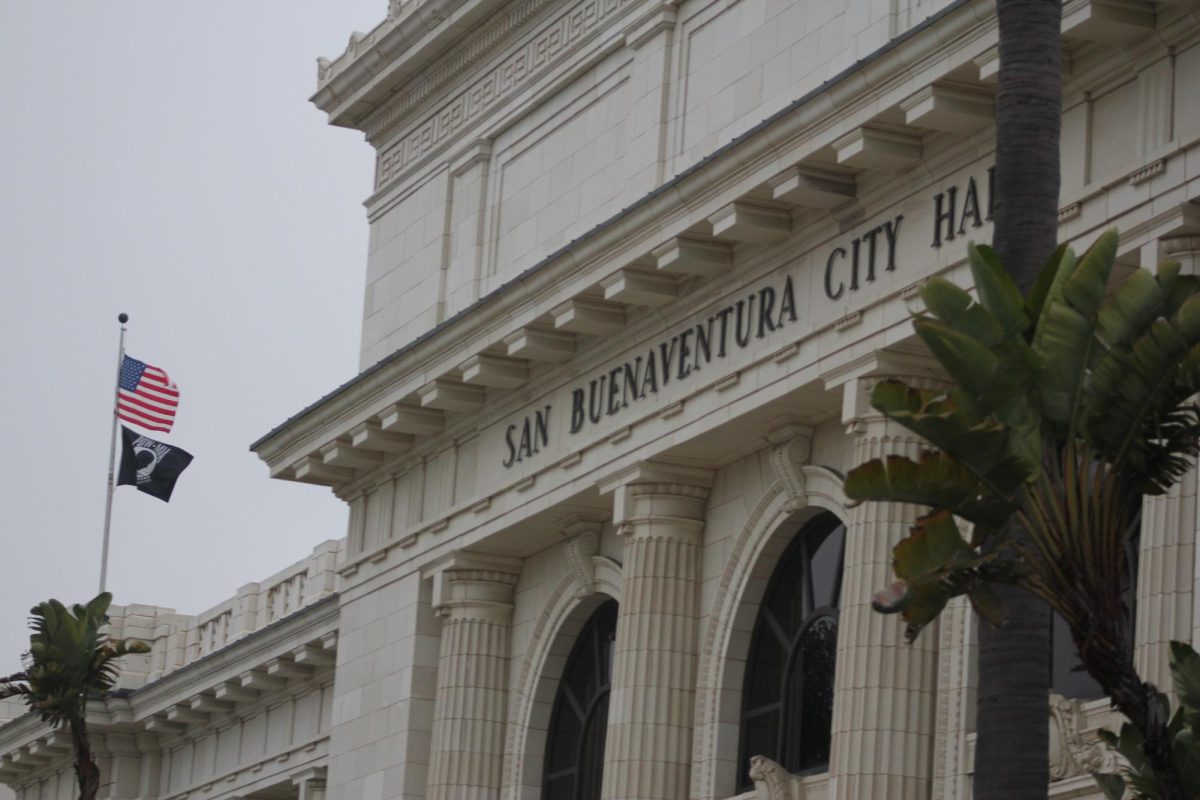This article is a continuation of the 2024 Presidential Election series that delves into all facets of the 2024 Presidential Election, held on Nov. 5, 2024. If you are curious about student opinions at Foothill Technology High School (Foothill Tech), presidential candidates or campaign maps, this series is for you.
In a world bubbling over with so many conflicting opinions, how does the new generation of voters take on each top issue of the 2024 presidential election? According to CNN, the top issues of young voters are economics and the cost of living, abortion, foreign policy and immigration.
In this article, students of Foothill Tech’s Advanced Placement United States Government and Politics (AP Gov) share their views on those crucial topics and more.
Healthcare
One facet of the growing cost of living throughout the United States is the increasing financial burden of healthcare. According to the Center for Economic Policy Research, “Despite living in the world’s wealthiest country, millions of Americans remain uninsured, underinsured or unsure of their coverage.”
To be more specific, a 2022 census report detailed that 7.9 percent of Americans were uninsured. The impacts of being uninsured are shared in a brief by the Kaiser Family Foundation (KFF): “Those without insurance are more likely to delay or forgo care due to costs,” and are less likely to “receive preventive care and services for major health conditions and chronic diseases.”
A survey conducted in Foothill Tech’s AP Gov classes on Sept. 11–12, 2024 found that about 81 percent of students somewhat or strongly agree with the implementation of universal healthcare, or public healthcare.
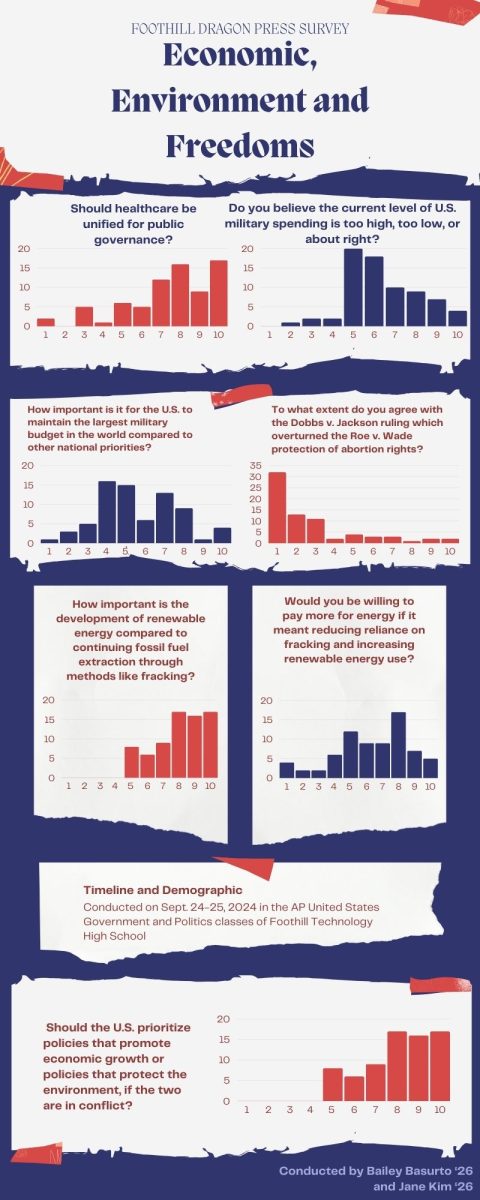
An anonymous student stated, “People deserve to have access to healthcare as a basic human right.” However, they also voiced that “switching to universal healthcare right now seems impossible. We would have to upend our government and current healthcare programs, causing problems for people needing healthcare during that time, and universal healthcare is well known to be unreliable.”
Philip Blessum ‘25 similarly reasoned that “privatized healthcare means that people have different levels of healthcare available, and some people don’t get what they need and are forced to live with health issues for economic reasons. The issue with government subsidization is, of course, [that] the quality of healthcare goes down, money gets lost as various managers of the whole thing and taxes have to go up or the national debt will.”
Military Spending
The military budget of the U.S. is higher than it has ever been at a (seemingly) staggering $850 billion. Although this number may seem like a colossal amount, it is relatively low compared to past spending, representing only about 3 percent of GDP. Econofact explains that “The United States economy has tended to grow faster than military spending, so defense spending as a share of GDP has been decreasing.”
Additionally, because the U.S. does not practice conscription, a significant share of the military budget goes to paying active-duty and reserve personnel, as well as civilian employees. The other half of the budget is spent mainly on procurement of supplies, research, development and testing.
Brookings describes the 2022 National Defense Strategy as intending the military to be capable of defeating China or Russia, defending the homeland, maintaining nuclear deterrence, deterring North Korea and Iran and maintaining momentum in the “war on terror.”
Chance Leandro ‘25 explained “We have the power to protect democracy worldwide, and we’re definitely a huge country. That being said, it does seem a little crazy that … we do spend more than the next 25 countries combined. I would take more of a middle ground stance in the sense that I think having a strong military is important.”
However, polls showed that most of Foothill Tech’s AP Gov students thought military spending was too high, with many wanting to see increased funding in areas such as education or infrastructure.
Brandon Wofford ‘25 stated, “Defense is important, but education is a constant and expensive task that needs proper funding which will ultimately improve the lives of teachers and students.”
Immigration
Perhaps one of the most contested issues of late, immigration specifically in the U.S.-Mexico border has taken a spotlight regarding presidential election policies. However, a significant portion of immigrants come from Asia and other parts of Latin America.
A Sept. 27, 2024 study conducted by the Pew Research Center states that, “The U.S. foreign-born population reached a record 47.8 million in 2023, an increase of 1.6 million from the previous year. This is the largest annual increase in more than 20 years, since 2000.”
However, as of 2022, 22 percent of immigrants living in the U.S. were unauthorized immigrants, which translates to roughly 11 million individuals.
An anonymous student said, “I’ve worked with people helping to get their citizenship and to renew green cards, and I know that a lot of people get scammed mainly because, first of all, [the resources] just are not accessible to foreigners. Even to me, it was really confusing. So I feel like applying for citizenship should be way more accessible.”
Leandro also commented, “I think right now, the problem is that it’s really difficult to get into the United States legally. So you see a lot of people [immigrating] illegally, [and] I think we just need to make it easier to immigrate legally.”
The student poll also shows similar trends. About 90.4 percent of AP Gov students believe that the U.S. should either maintain or increase current levels of border security, while 83.5 percent think that the U.S. should prioritize legal pathways for immigration.
Freedoms
As of 2022, one of the biggest issues surrounding “freedoms” in the political landscape is women’s right to bodily autonomy. The Dobbs v. Jackson case began in 2018 when the state of Mississippi granted the “Gestational Age Act” prohibiting abortion after 15 weeks of gestational age with a few exceptions. The Jackson Women’s Health Organization filed a lawsuit and questioned if Mississippi’s ruling is unconstitutional. The eventual verdict of the case in June of 2022 concluded that abortion is not a constitutional right and led to the overturning of Roe v. Wade 1973.
The overturning of Roe v. Wade meant that abortion is not protected under the Constitution, and U.S. states are granted the right to ban abortion or restrict it up to a certain point of pregnancy.
AP Gov students overwhelmingly disagree with this motion as when given a scale of one through ten, ten being you agree with the Dobbs v. Jackson ruling, 43.8 percent of the voters aligned with one.
An anonymous student said, “I think this is a very dangerous overturning. Women don’t just receive abortions to ‘escape motherhood,’ many women get abortions for simple medical necessity … This ban puts at risk many mothers who need access to the medical procedure, which can even lead to severe pain, trauma, or death for the mother.”
Environmental
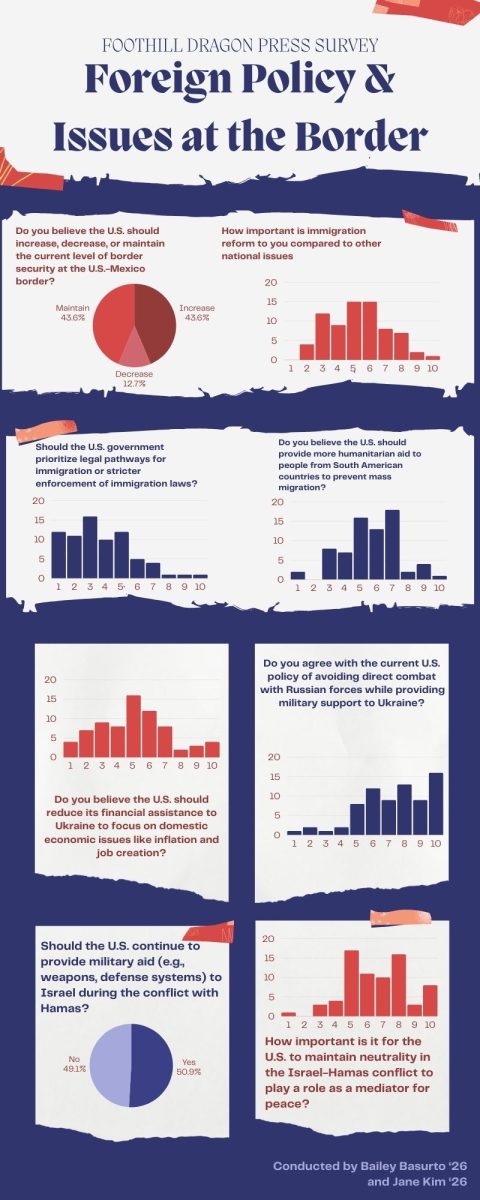
A more hands-on topic is how each presidential candidate will respond to environmental policies, tackling issues such as renewable energy nationwide, hydraulic fracturing, otherwise known as oil fracking and how these things might affect the states individually.
Oil fracking poses environmental issues as it tends to negatively affect water and air quality, as well as the quality of life in the communities that live by it. Many push for fracking to be replaced with more renewable energy sources for the sake of the environment, but in states such as Pennsylvania, fracking is critical for its economy, making it difficult to discount entirely. To learn more about fracking, read this Foothill Dragon Press (FDP) article.
In the poll, the majority of polled students believed that having renewable energy in our economy is important to society, while none chose to side with oil fracking. But when asked if they would be willing to pay more for renewable energy if that meant reducing reliance on fossil fuels, some agreed, but many stayed neutral.
Beatrice Barnes ‘25 stated, “The climate crisis is extremely threatening to every aspect of society as we know it, and actions towards increased sustainability need to be taken immediately. We can’t keep depending on outdated and environmentally/socially detrimental methods like fracking.”
Foreign Policies
America, as one of the wealthiest and most populated countries on the globe, is incredibly involved with the affairs of other countries worldwide. The government is responsible for trade, financial spending and funding to other countries, while also making sure the U.S. is safe and is appropriately involved in conflict when called for.
On Feb. 24, 2022, Russia made a large-scale invasion of Ukraine leading to the displacement of millions of Ukrainian citizens as well as military and civilian casualties. The U.S. since that date has been sending funds and aid to Ukraine in response to Russia’s invasion of Ukraine.
Another recent global conflict is the war between Israel and Hamas. According to the Council on Foreign Regulations, “Hamas is an Islamist militant movement that has controlled the Gaza Strip for nearly two decades … In October 2023, Hamas attacked southern Israel, killing nearly 1,200 people and taking more than 200 hostages. In response, Israel declared a war aimed at eradicating the group.” The current tension is whether or not America should continue supporting Israel amidst the conflict.
However, while the poll finds a unanimous agreement with the support of Ukraine, the views on the Israel-Hamas War are highly polarized. AP Gov students were almost directly split, with 50.9 percent of students agreeing that yes, the U.S. should continue to support Israel, and 49.1 disagreeing with this.
One anonymous student said, “As much as I have my own political beliefs about the war in Gaza, the U.S. is a longtime ally of Israel, and to stop that now will have long-term complications.”
Another anonymous student argued, “We should give out aid but threaten to stop if there is offensive conflict. We have the power as the most powerful worldwide superpower to tell two countries to stop fighting.”
Conclusion
After surveying the students in Foothill Tech’s AP Gov classes, one can observe some glaring tendencies, as well as some not-so-clear patterns. We hope that this article has given you some insights into young voters’ opinions on Foothill Tech’s campus and given you a starting point for continuing your very own research to establish strong opinions.
Now, if only we turn and look at the thousands of other trending issues in the U.S.…


